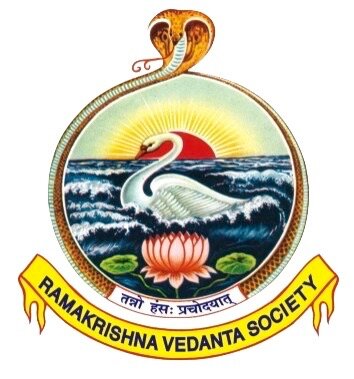An online seminar was jointly organized by the Parliament of the World’s Religions and Sri Ramakrishna Ashrama, Rajkot (India), on September 11, 2020, to commemorate the 127th anniversary of the first Parliament held in Chicago in 1893. Representatives from major world religions participated and spoke on interfaith harmony and world peace from the perspectives of their traditions. My short presentation at the seminar is given below.
सर्वेऽत्र सुखिन: सन्तु सर्वे सन्तु निरामया: । सर्वे भद्राणि पश्यन्तु मा कश्चिद् दु:खभाग्भवेत् ॥
सर्वस्तरतु दुर्गाणि सर्वो भद्राणि पश्यतु । सर्व: सद्बुद्धिमाप्नोतु सर्व: सर्वत्र नन्दतु ॥
Sarve’tra sukhinaḥ santu, sarve santu nirāmayāḥ.
Sarve bhadrāṇi paśyantu mā kaścid duḥkha-bhāg bhavet.
Sarvas-taratu durgāṇi sarvo bhadrāṇi paśyatu.
Sarvaḥ sadbuddhim āpnotu sarvaḥ sarvatra nandatu.
May all be happy and healthy.
May all see what is good and may no one experience misery.
May all overcome their obstacles and acquire good tendencies.
May people everywhere find joy and fulfillment
Similar prayers in different languages and from different traditions are much needed in today’s world, especially now that we are passing through this terrible pandemic, with millions infected and thousands already dead. If there is a need for harmony and peace, it is now—more than ever.
When our health is at risk, our inner physical harmony is also at risk. The anxiety and fear related to infection affects the mind, and that puts the mental harmony at risk. When bodies and minds of millions of people are thus affected—as is natural in a public health crisis—social harmony and peace, which are already elusive, become even more difficult to attain.
What Swami Vivekananda did at the Parliament of Religions in 1893 was to redefine the Hindu tradition in such a way that it could easily meet the needs of the contemporary world. But Swamiji also did something more than that—he lifted the tradition above and beyond the specificities related to history, culture and language, and made it relevant to people everywhere. Vedanta is the kind of spirituality that includes all and excludes none. Even as it celebrates diversity, it recognizes the essential unity that underlies everyone and everything.
When we speak about interfaith harmony, it is good to remember that the different faiths are always in harmony—it’s the people practicing those faiths that sometimes fail. Religions don’t fight with each other, but people do. The fights and quarrels, the violence and the wars—all of these happen due to lack of understanding as well as lack of practice.
If I don’t understand my own tradition well, if I remain fixated on the nonessentials and the superficial aspects, then there is a danger that I’ll miss the essence of my own tradition. This will naturally affect the nature of my practice. It will rob me of my peace of mind and make me more insecure. My insecurities will lead to anxiety and fear, and then I’ll easily become suspicious of others—and this is what eventually leads to discontent and disharmony within the family or in the neighborhood, and gets especially directed to people who are different from us—because of race, color, class, caste, ancestry, or religion.
Vedanta’s great gift to humanity is the teaching that cuts through all the superficialities and goes to the heart of the problem. It is ignorance that is the basic problem—our ignorance about who we are and what the purpose of life is. To overcome this, we all need to study our own traditions well and, as far as it is practicable, also other traditions. When we undertake this study with sincerity, attention and love, we will discover treasures that will make us better human beings. The study will change how we see ourselves and the world around us.
We’ll then see that God is one and the same, although identified by different names and worshiped in different ways. We’ll see that every religious tradition has the power to take its followers to the ultimate goal of peace, freedom and fulfillment. If we truly love our own tradition, it will be impossible to hate any other tradition. Those who have found peace in their hearts are able to restore peace outside. Those who are disturbed in their hearts are prone to create disturbance outside as well. Inner change always precedes outer change. This is what we learn from Vedanta.
Let me now conclude with Swami Vivekananda’s words: “If the Parliament of Religions has shown anything to the world it is this: It has proved to the world that holiness, purity and charity are not the exclusive possessions of any church in the world, and that every system has produced men and women of the most exalted character. … Upon the banner of every religion will soon be written, in spite of resistance: ‘Help and not Fight,’ ‘Assimilation and not Destruction,’ ‘Harmony and Peace and not Dissension.’” (CW 1. 24)

